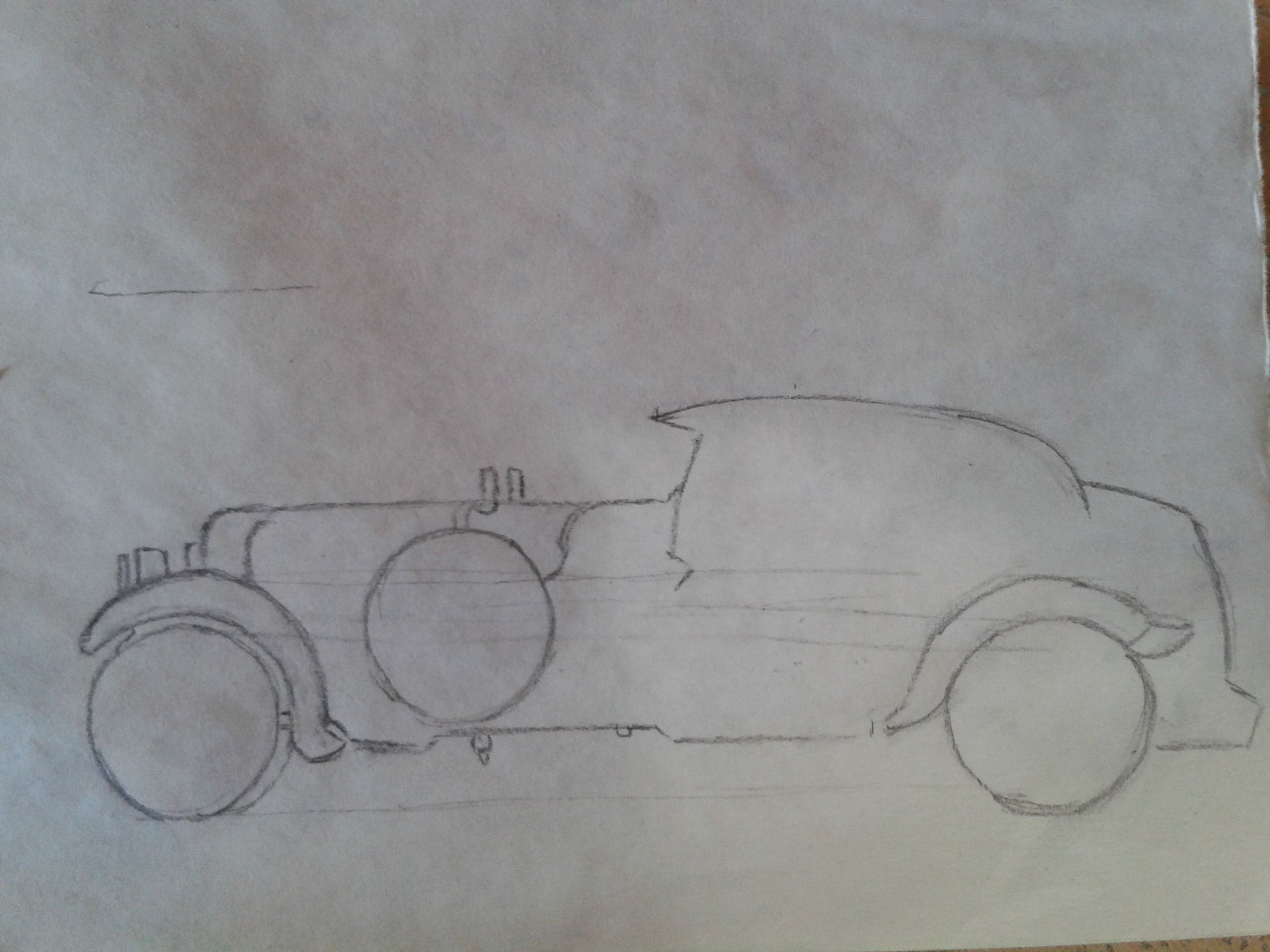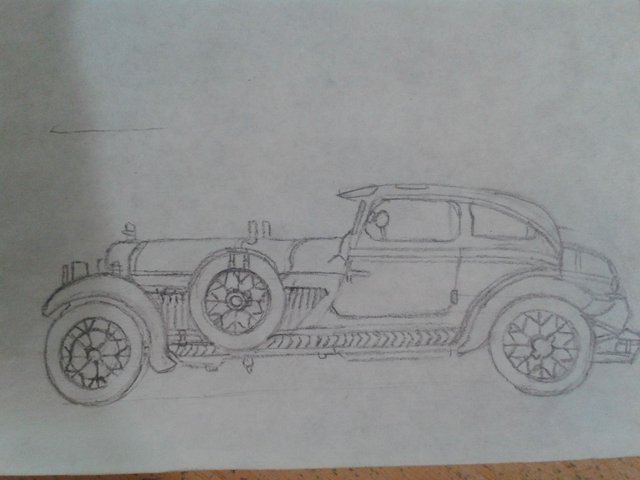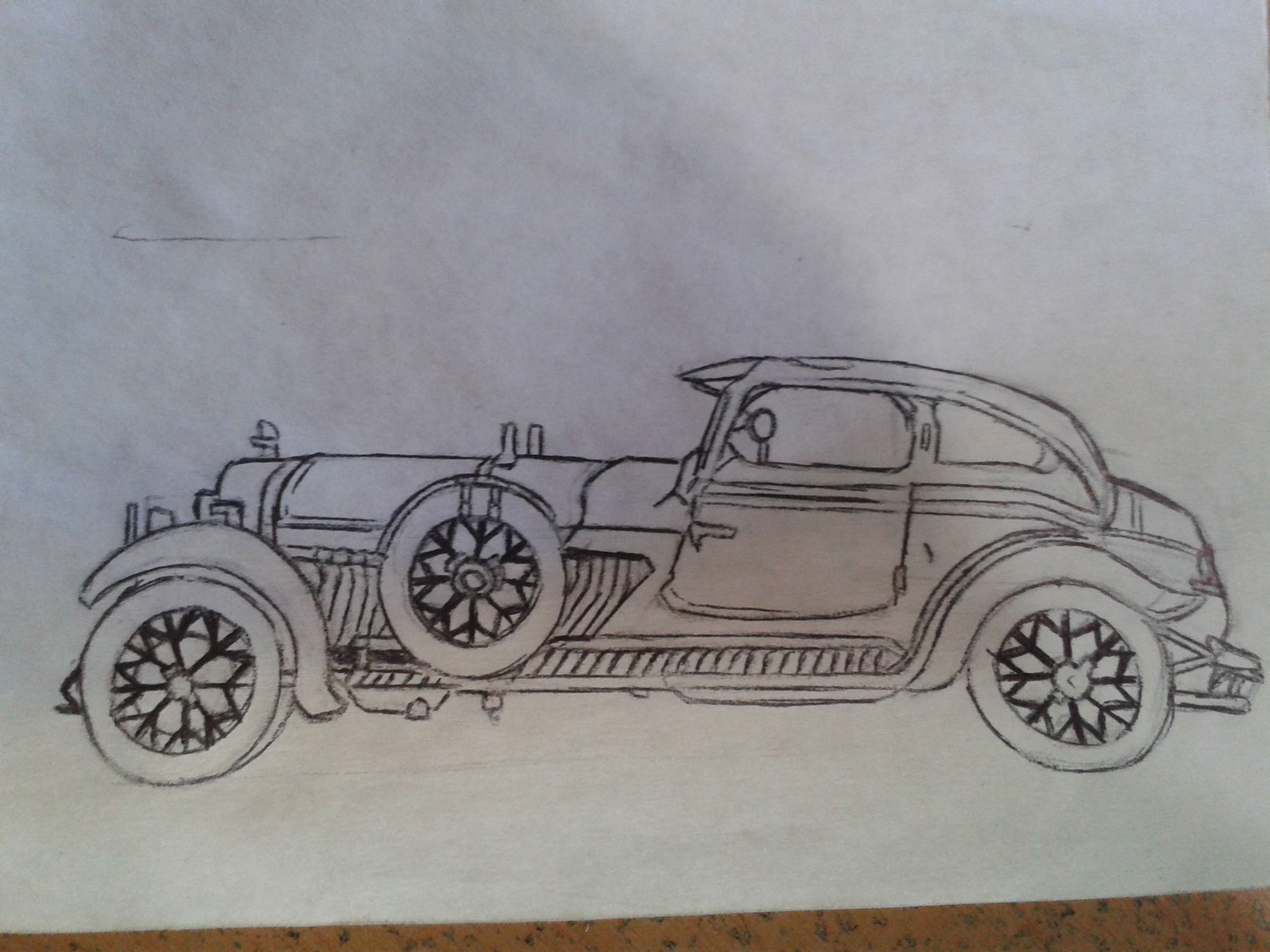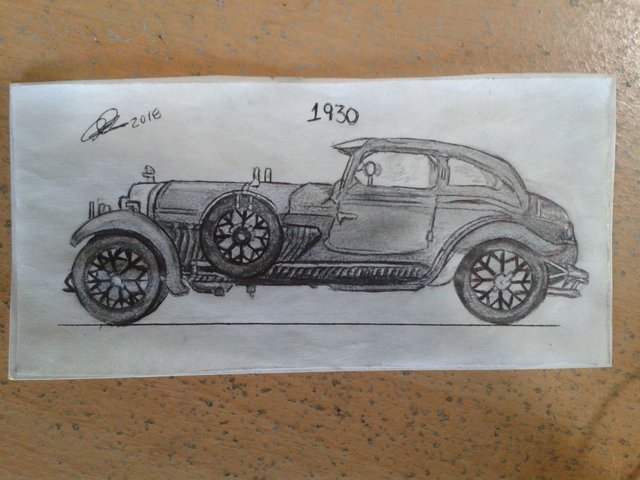Autos Clásicos 1930/ Classic Cars 1930
#ESPAÑOL:
¡Muy buenas gente de Steemit!, ¿Cómo les va? El día de hoy les hablar un poco de la historia de los autos, empiezo desde este año porque me llamo la atención las características que tuvo el automóvil desde la primera guerra mundial (1914-1918) hasta que culmino la segunda (1939-1945), interfiriendo estas en los modelos y materiales que se tuvieron que utilizar para los enfrentamientos. Teniendo esto en claro les dejo la información junto con un dibujo del frontal del auto más vendido para esa época …Espero que les guste.
Hay que tener en cuenta que el periodo más influyente en la evolución de los autos fue durante la primera guerra mundial donde muchas compañías (Ejemplo: la Benz, Daimler, BMW o Steyr) se habían dedicado a la creación de armamento y la fabricación de vehículos sin techos o carros con motores de bajos potencial debido a sus techos pesados que servían para trasladar a las tropas. Al culminar la guerra estas empresas se encontraron sin mercado para sus productos de fines militares , influyendo así en el proceso de recursos primordiales, esto llevo a la explotación de la industria automovilística. Se realizaron trabajos para la modificación de los autos para que fueran más funcionales para la vida ordinaria o la militar, para alcanzar este objetivo se tuvieron que realizar una serie de cambios:
1- La cubierta del radiador se hizo más el rostro de los coches: La mayoría de las chaquetas del radiador se convirtió en cromado. Como una camisa de radiador cromada parecía más atractiva y hace el auto más sombrío.
2- Las juntas de protección de la rueda se convirtió en cromado y también otras bandas ornamentales.
3- Tuvo un diseño aerodinámico que aumentó el volumen de la máquina (el primer vehículo con estas característica fue el Chrysler(1934))
4- Participo el concepto de racionalización de combustible, creando así motores a base de carbón(el primer vehículo con estas característica fue el Carioca(1939))
5-Usos de modelos de carrocería autoportante, el chasis y la carrocería son una unidad inseparable. Con ello se consigue mayor estabilidad, reducción en el peso y en los costes.(el primer vehiculo fue el Citroën 7A Traction Avant(1935))
6-Uso de motores V8:creado en1932 por Henry Ford, este ofrece 8 plantas de energía, con su carburador corriente de aire descendente(auto:cabriolet)
7-Uso de radiadores de banda ancha y cuerpos de acero para los vehículos
DIBUJO DEL MERCEDES BENZ 770:




Good people from Steemit! How are you doing? Today I will talk a little about the history of the cars, I start with this year because It called my attention the characteristics of the car since the first world war (1914-1918) until the end of the second (1939-1945) , interfering these in the models and materials that had to be used for the confrontations. Having this clear, I leave the information with a drawing of the lateral of the best-selling car for that time ... I hope you like it.
Keep in mind that the most influential period in the evolution of the cars was during the first world war where many companies (Example: the Benz, Daimler, BMW or Steyr) had been dedicated to the creation of weapons and the manufacture of vehicles without roofs or cars with potential low engines due to their heavy roofs that served to move the troops. At the end of the war these companies found themselves without a market for their products for military purposes, thus influencing the process of primordial resources, this led to the exploitation of the automobile industry. Work was done to modify the cars to be more functional for ordinary or military life, to achieve this goal a series of changes had to be made:
1- The radiator cover became more the face of the cars, Most of the radiator jackets became chromed. Like a chrome radiator shirt it looked more attractive and makes the car more grim.
2- The wheel protection joints became chromed and also other ornamental bands.
3- It had an aerodynamic design that increased the volume of the machine (the first vehicle with these features was the Chrysler (1934))
4- participated the concept of fuel rationalization, thus creating coal-based engines (the first vehicle with these characteristics was the Carioca (1939))
5- Uses of self-supporting body models, the chassis and the body are an inseparable unit. This achieves greater stability, reduction in weight and costs (the first vehicle was the Citroën 7A Traction Avant (1935))
6- Use of V8 engines: created in 1932 by Henry Ford, it offers 8 power plants, with its downstream air carburetor (auto: cabriolet)
7- Use of broadband radiators and steel bodies for vehicles
Photograph of the Mercedes Benz 770:

Do not forget to leave your vote if you liked the drawing and the information, ahh and if you have a question on the subject, you can leave it in the comments ... they will be answered :)
No olvides dejar tu voto si te gustó el dibujo y la información,ahh y si tienes una pregunta sobre el tema,puedes dejarla en los comentarios...serán respondidas :)
This post has received a 2.54 % upvote from @drotto thanks to: @leandibujo.
Great work on this piece! I find that drawing objects is harder than drawing people but you captured all the details and even got the shading in. I even liked the little lesson you gave. Cheers!
Thanks for your comment, I'm glad you liked the theme :)
Congratulations! This post has been upvoted from the communal account, @minnowsupport, by Leandibujo from the Minnow Support Project. It's a witness project run by aggroed, ausbitbank, teamsteem, theprophet0, someguy123, neoxian, followbtcnews, and netuoso. The goal is to help Steemit grow by supporting Minnows. Please find us at the Peace, Abundance, and Liberty Network (PALnet) Discord Channel. It's a completely public and open space to all members of the Steemit community who voluntarily choose to be there.
If you would like to delegate to the Minnow Support Project you can do so by clicking on the following links: 50SP, 100SP, 250SP, 500SP, 1000SP, 5000SP.
Be sure to leave at least 50SP undelegated on your account.